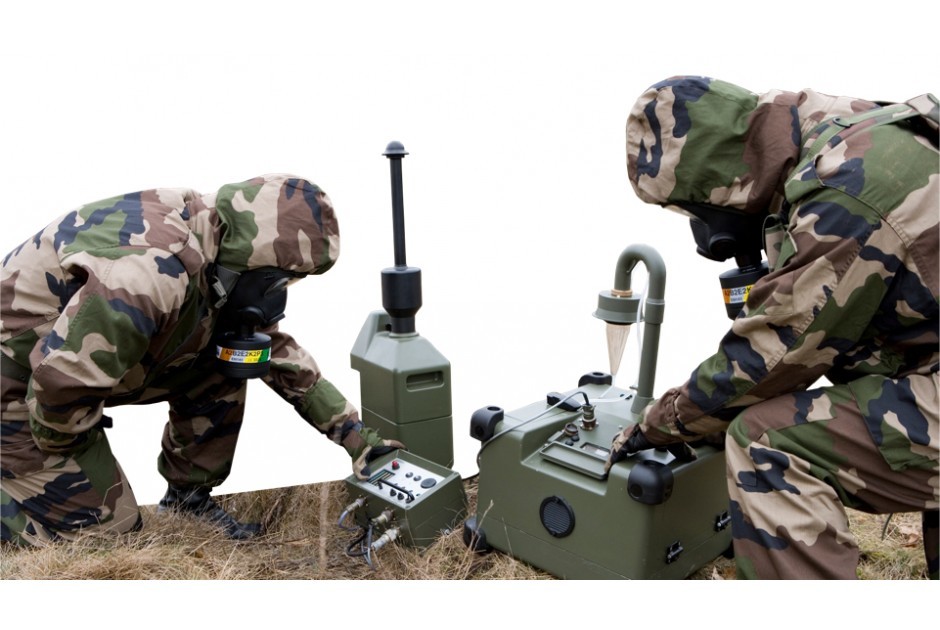ISO 7730 Ergonomics of thermal environment comfort evaluation testing
The ISO 7730 standard plays a crucial role in ensuring that products and environments are comfortable in terms of temperature, humidity, and air movement. This standard is particularly important for the military sector where personnel often operate in extreme environmental conditions. Military personnel require protective equipment and systems that can maintain comfort while providing essential protection.
ISO 7730 defines a method for evaluating thermal environment comfort based on physiological and subjective responses of occupants or users. The primary focus is on the thermal comfort zone, which ensures that individuals are neither too hot nor too cold in their working environments. This standard helps to improve safety, enhance operational effectiveness, and reduce discomfort-related complaints.
The testing process involves subjecting individuals to controlled environmental conditions and measuring their physiological responses such as skin temperature, heart rate, and sweat production. Subjective responses like ratings of comfort are also measured using standardized scales provided in the ISO 7730 document. This holistic approach ensures that both objective and subjective data contribute to a comprehensive evaluation.
For military applications, this testing is vital for assessing the thermal performance of protective clothing, shelters, and vehicles. The results provide critical insights into how well these items maintain comfort under various conditions, which can significantly impact user satisfaction and operational efficiency.
In practice, the testing procedure involves setting up a test chamber to simulate real-world environmental conditions. Participants wear the equipment being tested and are subjected to controlled changes in temperature, humidity, and air movement. The test duration is typically long enough to observe consistent physiological and subjective responses.
The comfort zone according to ISO 7730 is defined as the range within which most individuals feel comfortable. This zone is determined by statistical analysis of data from a large number of participants. The standard specifies that for the thermal comfort index (TCI), approximately two-thirds of participants should be within this zone.
Testing and evaluation based on ISO 7730 not only ensure compliance with international standards but also contribute to the design and improvement of protective equipment in military settings. Compliance officers can use these test results to verify that products meet safety and comfort requirements, while R&D engineers benefit from detailed data to refine future designs.
Quality managers find this testing particularly valuable for ensuring consistent product performance across different environments. Procurement teams also rely on the results to select suppliers who adhere to strict comfort evaluation standards. The application of ISO 7730 in military testing is a prime example of how international standards can enhance safety, efficiency, and user satisfaction.
Why It Matters
The importance of thermal environment comfort cannot be overstated, especially for military personnel who often operate under extreme conditions. Comfortable environments not only improve the well-being of users but also directly impact their performance and safety. Here are some key reasons why ISO 7730 testing is critical:
- Enhanced Operational Efficiency: Comfortable working conditions allow soldiers to focus on tasks without distractions caused by discomfort.
- Better Safety: Inadequate thermal comfort can lead to heat stress or hypothermia, increasing the risk of accidents and injuries.
- User Satisfaction: Equipment that provides a comfortable thermal environment is more likely to be well-received and used effectively by personnel.
- Improved Design: Testing based on ISO 7730 helps manufacturers design equipment that better meets the needs of end users, leading to higher satisfaction rates.
- Compliance with Standards: Ensuring compliance with international standards like ISO 7730 is essential for regulatory and safety reasons.
The military sector's reliance on these tests underscores their importance in ensuring that protective equipment and systems are not only functional but also comfortable, which ultimately contributes to the overall effectiveness of operations.
Applied Standards
The ISO 7730 standard is widely recognized for its comprehensive approach to evaluating thermal comfort. It aligns with other international standards such as EN 16798-1, which provides additional context on the design and evaluation of protective clothing in relation to thermal stress.
ISO 7730 defines four levels of thermal comfort: neutral, warm, hot, and cold. Each level is characterized by specific physiological and subjective responses that are measured during testing. This classification helps manufacturers target their products more precisely to meet the needs of different environments and user groups.
The standard also includes guidelines for conducting the tests, including environmental control parameters such as temperature (19°C ± 2°C), relative humidity (50% RH ± 10%), and air velocity (3 m/s ± 1 m/s). These controlled conditions ensure that the results are consistent and reliable.
For military applications, the standard is particularly useful in evaluating protective clothing such as body armor, helmets, and shelters. The thermal comfort index (TCI) calculated according to ISO 7730 provides a quantitative measure of how well these items maintain a comfortable environment for the wearer.
The application of ISO 7730 in military testing is not just about meeting regulatory requirements; it's also about enhancing performance and safety. By adhering to this standard, manufacturers can ensure that their products are suitable for use in various climates and conditions, thereby improving operational effectiveness.





